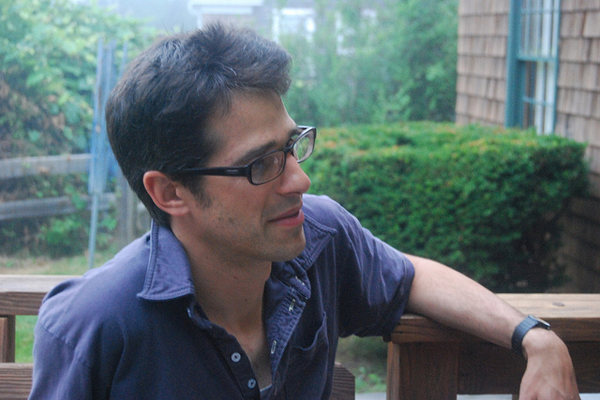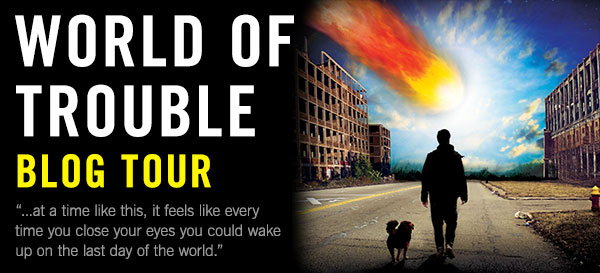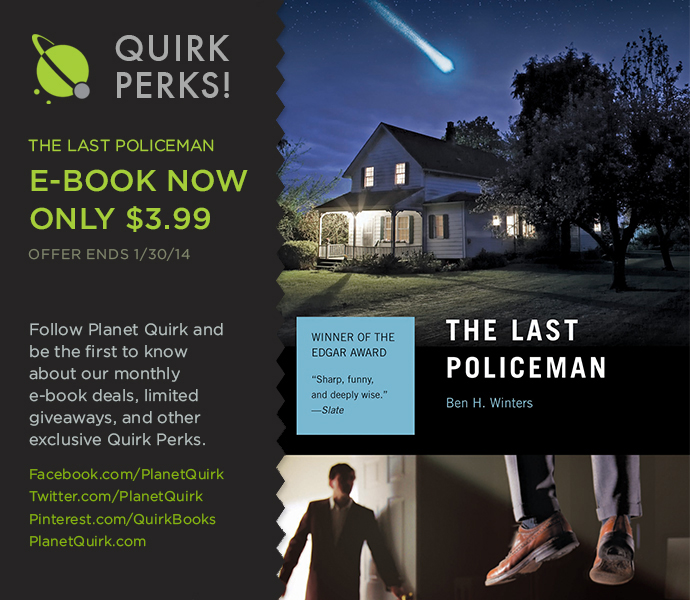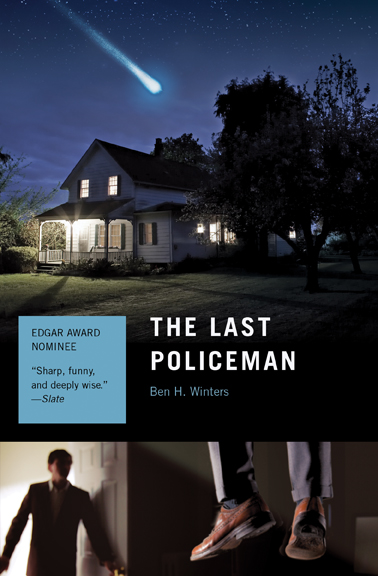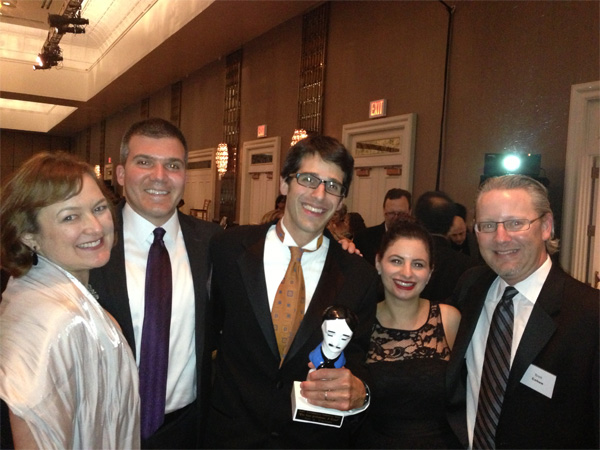A Q&A With Ben H. Winters, Author of The Last Policeman
In Ben H. Winters' latest novel, The Last Policeman, we're introduced to Hank Palace, a detective still working the beat in a pre-apocolpytic world.
The first title in a trilogy, the book raises a lot of questions, challenging the reader to wonder what they would do in Hank's precarious situation. Some people have chosen to share their answers with us on The Last Policeman's website. You should too!
Speaking of questions and answers, we sat down and chatted with Ben about his experience writing the book. Read on to learn about his process, his research, and what he would do if the world was ending in six months. Enjoy!
The Last Policeman is set in a world in which a massive asteroid is hurtling toward Earth, but the novel centers on one detective’s murder investigation. Where did you get the idea to combine these two disparate elements of storytelling?
Well, you know, story ideas are like giant planet-dooming asteroids: they always take you by surprise. But I’ve always had a soft spot for certain kinds of science fiction, books that imagine one grand change to the human situation and tease it out. P. D. James’s Children of Men is a marvelous example, or Philip José Farmer’s Riverworld series.
The “pre-apocalyptic” side of this “pre-apocalyptic murder mystery” definitely came first. I thought it would be fascinating to imagine my way into the sad and terrifying last months of civilization. Then I set about imagining the right hero for this kind of book, and I thought that what I needed was someone who is extremely dedicated to his work, who cannot let the world end before solving the puzzle before him. That’s where the character of Detective Henry Palace came from, my intensely, even bizarrely dedicated public servant.
In reading the book, it becomes clear that a lot of thought and research went into envisioning this world wherein our planet will be destroyed in six months. What kind of research did you do to establish an accurate portrayal of such a scenario?
I’m a big proponent of first-hand research. I was wildly fortunate that, when I started this project, I was living in Cambridge, Massachussetts, home of the Minor Planet Center at the Smithsonian Astrophysical Observatory, which is run by Dr. Timothy Spahr, one of the world’s experts on this subject matter. (As characters in The Last Policeman are always saying, what were the odds?) Dr. Spahr was very generous with his time, as were a ton of other experts: in economics, sociology, survivalism, life insurance, etc. Also, because I was writing a murder mystery as well, I got to consult with people on that side, too: cops, coroners, prosecutors. And I made many trips to Concord, New Hampshire, where the book is set.
I should say, by the way, that while it’s flattering to think that mine is an “accurate” portrayal of what the world would be like on the brink of an event like this, really, who knows? Part of the fun of reading it, I hope, will be just that question: How right have I got it? What would it really be like? How would people really behave knowing how little time was left?

What was the most surprising thing you learned about what could occur in the months leading up to Earth’s destruction?
Well, the projected physical devastation has been pretty well covered by disaster movies: the crater, the tsunamis, the cloud of ash, and so on. All horrifying and more or less accurate (depending on the size of the object). What I was most fascinated by was everything I learned about economic behavior in the face of uncertainty. I talked a lot with economists about, for example, what the Federal Reserve would do to encourage savings and keep the economy in motion if there was, say, a one-in-one-hundred chance of apocalypse. So I learned about megaton blasts and global temperature drop, but also about inflationary pressure and the interest rate and the stock market.
In a world where there are high rates of suicide, instances of martial law, and widespread apathy, how do you create a story that the characters and the readers will find important? It’s all about my hero, Detective Palace. He cares, so—hopefully—the reader will care. He would never say it this way, but he believes that every human life matters, that every murder is a diabolical act, even when all human life is about to end. When you see it that way, the stakes are higher against a background of suicide and martial law and apathy; the essential humanness that Palace clings to matters more—more than ever.
Nearly all of Palace’s colleagues at the police department have checked out of their jobs, either mentally or literally. What do you think makes him so determined to see this murder investigation through?
Well, you know, he took an oath. Which is kind of a glib answer, but it goes to the heart of what the book is about. All the promises and assurances we make to each other and ourselves, as a society—from wedding vows between people to mutual-defense pacts between nations to the illusion that paper currency has value—how much is any of it really worth?
The other answer has to do with Palace’s childhood. As the reader learns in bits and pieces over the course of the novel, Palace has had a rough go of it, even before the asteroid showed up. The defiant child in him refuses to be cowed, refuses to be quit, end of the world or no end of the world.
The obligatory question: What would you do if Earth would be annihilated in six months?
Well, I’m under contract with Quirk Books to write the sequel to The Last Policeman, so first I’d get that done.
Just kidding. I think, honestly, that I would spend time with my children. I’d read them a lot of books, and take them to beautiful places, and try to prevent them from hearing anything about what was coming. (The idea of that, by the way, makes me tearful, as it did periodically over the course of writing this.)
Can you give us any details about the upcoming second and third novels in the series?
Like The Last Policeman, each of the sequels will have at its center a crime that Palace is trying to solve. But, also like this one, each will be at least equally interested in the details of the disintegrating world, and in plumbing the psyche of this lawman: how and why he remains “on the job” even as the job, along with the rest of civilization, crumbles around him.
—
For more on The Last Policeman, visit the official website for the trilogy (to share what you would do!) and like the page on Facebook!
Eric Smith

ERIC SMITH is the cofounder of Geekadelphia, a popular blog covering all-that-is-geek in the City of Brotherly Love, as well as the Philadelphia Geek Awards, an annual awards show held at the Academy of Natural Sciences. He’s written for the Philadelphia Inquirer, Philadelphia Weekly, and Philly.com
